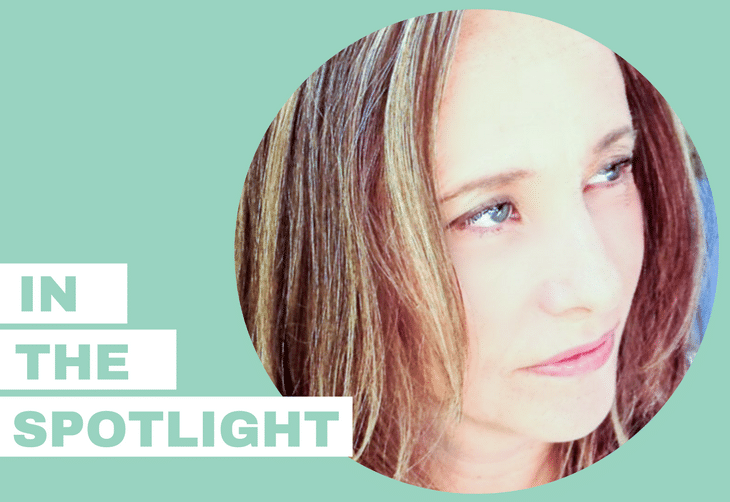In the spotlight: Paula Jones Hanson
Paula is a freelance producer, engineer, mixer and remixer who has been a prominent figure in the recording industry worldwide. She has worked around the globe with the world's greatest producers such as Chris Thomas, Tony Brock, Dave Stewart, Martin Chambers and Charlie Clouser and artists including Elton John, Michael Hutchence, and Marcella Detroit. Now she's back in home in Sydney, and as a featured speaker at this year's Integrate, we took the opportunity to get to know her a bit better and hear what has inspired her impressive career.
Q. You have an impressive background as a producer and audio engineer, do you have any career highlights you can share?
PJH: Thank you – yep I’ve had a few – watching a song I engineered (Can You Feel The Love Tonight) win the Academy Award was pretty fun. But nothing will ever top the feeling I had when Tim Farriss spilled the beans the night we finished recording Inxs’ Kick that they wanted me to go to London with Chris Thomas to assist (basically I had written down every setting for every piece of gear that was used to make that record, so for continuity’s sake, pre-computers) he and Bob Clearmountain while they mixed it at George Martin’s Air Studios. I had never left the country and was only 22. It was so exciting. I’ll never forget it. Those are the real highlights, not the number ones or the awards.
Q. Originally from Sydney, you have worked all over the world. How does the Australian industry compare with what you have experienced overseas, and is there something that drew you back here – what are you working on now?
PJH: I don’t feel qualified to comment yet, I haven’t been involved in the Australian scene long enough to make an informed comparison. I brought my family back to Australia because I think for people with kids, you just can’t beat the quality of life here. I want my child (she’s 10) to grow up in that fearless Aussie way. It really is a special place.
Q. How has the industry changed over the years – and has it been for the better?
PJH: The industry itself is almost unrecognisable. Is that for the better? Who knows? That’s irrelevant really. I see a lot of people who’ve been around for a while lament the passing of the good old days. But that’s not helpful. You can’t unpickle that cucumber. Criticising now vs then demonstrates low confidence in the people coming now up and in the future, which is a tad arrogant I reckon. They’ll take care of things, just like we did.
The one thing I do miss, though, is the camaraderie we had when we all worked in multi-room studios. It’s not the technology – technology will always morph, and much of it is fantastic, it’s just a tool – but I find the ability to work from anywhere a bit isolating, paradoxically. As we integrate recording technology into our domestic lives, we forfeit having to congregate in a purpose-built space, and we lose the physical community. I’d like to see that return. I think some great things are lost because of the isolation and individualisation of workspaces now. People grieve the old technology but I think they really grieve the loss of human connection.
Q. Has there been one specific person/artist/producer who has influenced you the most?
PJH: I have some very special people that have been mentors and friends, and to whom I owe a great debt of gratitude for shaping my career – David “Chippa” Nicholas, Chris Thomas, Charlie Clouser, my friend Kirke Godfrey (ugh, I know I’ve forgotten someone – apologies in advance). But the one producer who influenced me most aesthetically, the one who stood out to me before I even started in the business is Nick Launay. When I heard Midnight Oil’s 10-1 album I fell in love with it and just about wore it out. It’s amazing production still. Astounding. There are a few records along the way that have been super inspiring to me – Shabooh Shoobah (Inxs), Mind Bomb (The The), Achtung Baby (U2), OK Computer (Radiohead), The Downward Spiral (NIN) and Drones (Muse). Those I loved and still do. But 10-1 is the benchmark I still aspire to sonically.
Q. With all of the current focus on gender equality across many creative industries – can you comment on your own journey as a woman in this male-dominated industry?
PJH: I really try not to. I’ve had a lot of love and some extraordinary support from the many people I’ve worked with over the years. I’m happy to help anyone who’s struggling, and I’ve been involved with panels and the like with regard to women in production. I would never ever diminish anyone’s negative experiences, or undermine their valid complaints. It’s not part of my story though so I can’t speak to that experience. Of all the challenges I’ve had, being a woman was probably the least. Having said that, women are woefully underrepresented now just as they were back then. I am surprised it hasn’t really changed.
Q. Do you have a specific philosophy when it comes to the creative process of audio design / mixing / composing?
PJH: Yes, always trust yourself. If you think something is wrong, it is, 99.9% of the time. Sometimes you second guess yourself because if you identify a problem you have to solve it, which can be tricky. You may have to stop the flow of work or you may ruffle some feathers. But it won’t go away and it will bite you in the arse sooner or later. So trust your instincts and take care of it. It takes confidence to do that but everything you do will be better as a result.
-
Stay up to date with the latest news, industry insights and Integrate updates.
- Subscribe

